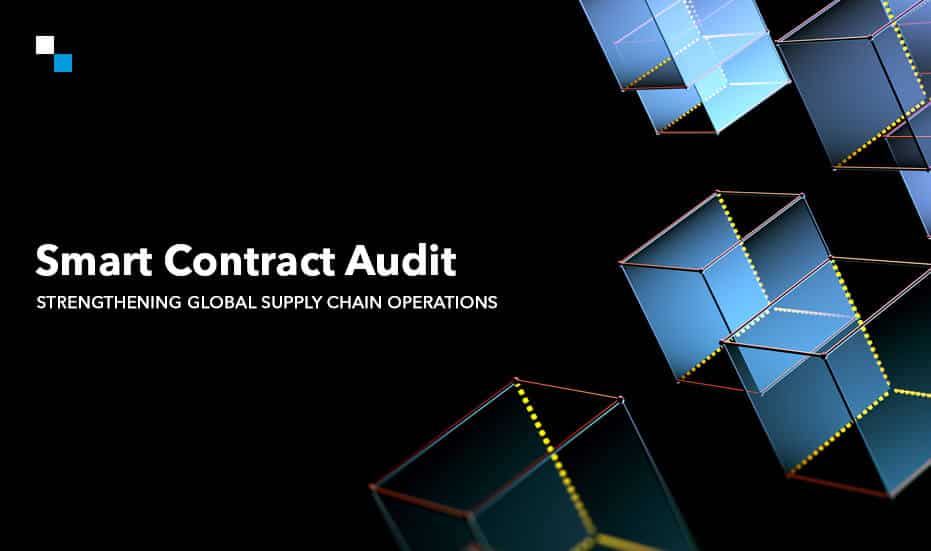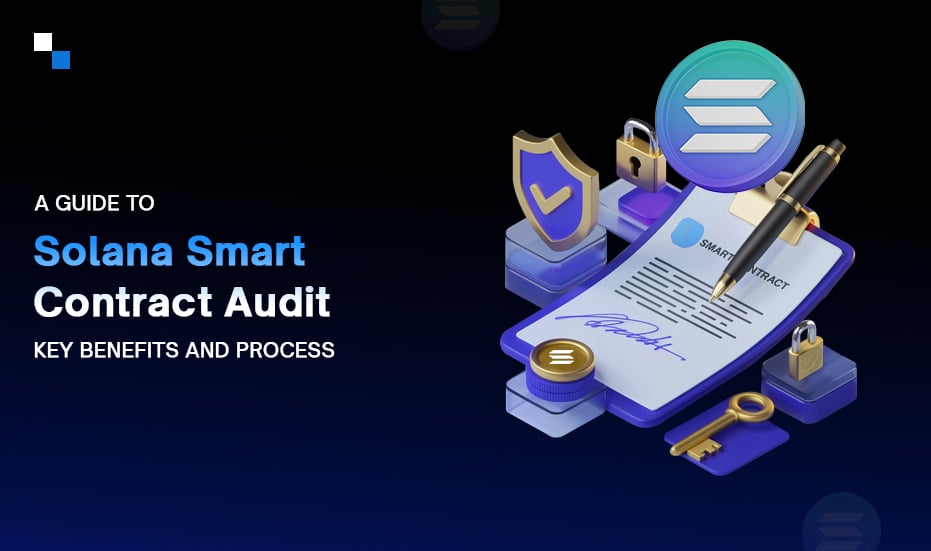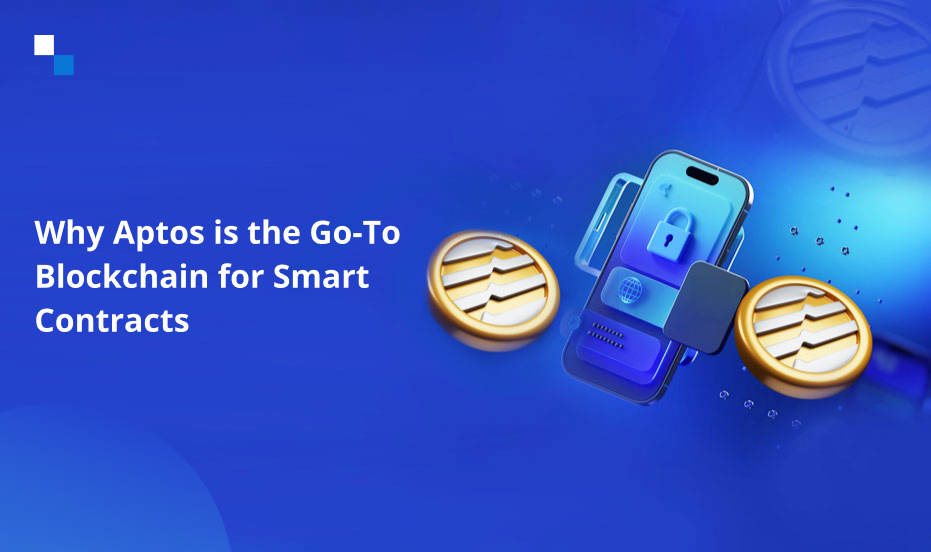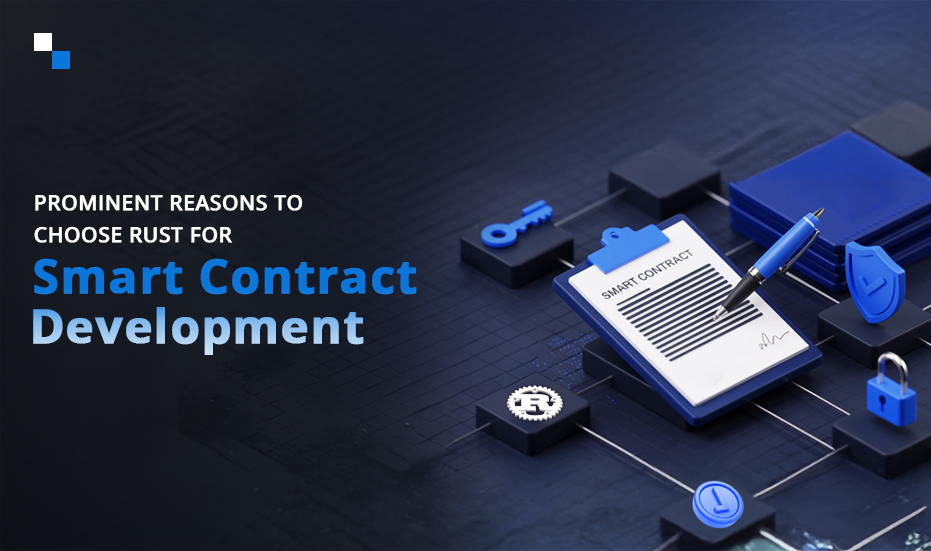
Unveiling the Cost & Timeframe of Building a White Label Crypto Wallet Card
July 23, 2024
How to Build a Game with Unreal Engine?
July 23, 2024Smart contracts, the programmed codes lying on the blockchain that are capable of self-execution, can automate tasks based on predetermined rules. They have brought transformative changes in different sectors, including worldwide supply chains, by simplifying processes, cutting expenses, and improving visibility. However, as smart contracts become more widely used, it is critical to prevent possible implementation concerns. Smart contract audit services play a very important role in this situation.
The Role of Smart Contracts in Global Supply Chains
As already discussed, smart contracts are self-sovereign in nature, so they run automatically according to the preset criteria. When we speak of global supply chains, deployment of smart contracts can automate and streamline various processes, including:
- Inventory management
- Payment processing
- Quality control
- Logistics coordination
- Compliance tracking
While these programmed codes provide extensive advantages, they also introduce new risks that need to be cautiously managed. It isn’t complex! You can do it simply by tying up with a reliable smart contract audit company.
The Importance of Smart Contract Audits
The technique of smart contract audit involves testing the codes to become aware of vulnerabilities, inefficiencies, and capacity safety threats. As businesses are leveraging blockchain technology to handle worldwide supply chains, the position of smart contract auditors has become essential in making sure the integrity and security of the complete process.
Key Benefits of Smart Contract Audit Services
Smart contract audit services undertake a detailed analysis of smart contracts and identify & mitigate these risks. It offers various benefits for businesses that are involved with operating global supply chains, which include:
- Security: Audits ascertain that the smart contracts possess no vulnerabilities or security loopholes that can be exploited through malicious intent.
- Enhanced Reliability: Audits ensure the reliable and predictable execution of smart contracts by finding and fixing any bug or error.
- Legal Compliance: Audits confirm if smart contracts conform with the applicable laws and regulations, thus not being exposed to liabilities.
- Operational Efficiency: Audit can help to identify operational risks and assure that smart contracts are designed efficiently within the supply chain.
- Increased Confidence: A report from a trusted smart contract audit company would give the stakeholders confidence in the security and reliability of smart contracts being implemented.
Risks Associated with Different Types of Smart Contracts
Here are the different types of smart contracts, the risks associated with them, and the ways to keep those risks at bay:
1. Payment and Financial Contracts Risks:
- Unauthorized transfer of funds
- Mistake in the calculation of payments
- Exposure to reentrancy attacks
Mitigation Strategies:
- Implement secure withdrawal patterns
- Use standardized libraries for mathematical operations
- Conduct thorough testing of financial logic
2. Inventory Management Contracts Risks:
- Inaccurate stock tracking
- Vulnerability to front-running attacks
- Data inconsistencies across multiple parties
Mitigation Strategies:
- Implement access controls and data validation
- Use time-stamping and sequencing mechanisms
- Regular reconciliation with off-chain data
3. Logistics and Tracking Contracts Risks:
- Manipulation of shipping data
- Privacy concerns with sensitive information
- Interoperability issues across different systems
Mitigation Strategies:
- Implement encryption for sensitive data
- Use oracle services for verified external data
- Develop standardized interfaces for cross-system communication
4. Quality Control and Compliance Contracts Risks:
- Manipulation of quality metrics
- Outdated regulatory information
- Inconsistent enforcement of standards
Mitigation Strategies:
- Implement multi-party verification for quality assessments
- Regular updates of regulatory data through trusted oracles
- Automated compliance checks with clear audit trails
5. Multi-party Coordination Contracts Risks:
- Complex interdependencies leading to deadlocks
- Unequal distribution of power or resources
- Difficulties in dispute resolution
Mitigation Strategies:
- Implement clear state management and transition rules
- Use voting or consensus mechanisms for key decisions
- Include arbitration clauses and fallback mechanisms
How Smart Contract Audit Services Address These Risks
Smart contract audit services contribute to the seamless and secure operation of global supply chains by addressing the following aspects:
1. Comprehensive Code Review
A thorough examination of the smart contract’s code is the foundation of any audit. Experienced auditors from a reputable smart contract audit company will:
- Analyze the contract’s logic and structure
- Identify potential vulnerabilities and security flaws
- Assess the contract’s efficiency and gas usage
- Verify the accuracy of implemented business logic
2. Automated Testing and Analysis Smart Contract Audit Services often employ advanced tools for automated testing, including:
- Static analysis tools to identify common coding errors
- Dynamic analysis to simulate various execution scenarios
- Fuzzing techniques to test the contract’s behavior under unexpected inputs
- Symbolic execution to explore all possible execution paths
3. Manual Inspection and Expert Analysis
While automated tools are valuable, the expertise of human auditors is irreplaceable. Manual inspection allows for:
- Context-aware analysis of the contract’s purpose and implementation
- Identification of complex logical errors that automated tools might miss
- Assessment of the contract’s alignment with business requirements
- Recommendations for best practices and optimizations
4. Simulation of Attack Scenarios
To ensure robustness, auditors often simulate various attack scenarios, including:
- Reentrancy attacks
- Front-running attempts
- Overflow and underflow exploits
- Access control bypasses
5. Interoperability and Integration
Testing For supply chain smart contracts that often interact with multiple systems, auditors will:
- Verify the contract’s behavior when interacting with other contracts
- Test integration with off-chain systems and oracles
- Assess the contract’s performance under different network conditions
6. Compliance and Standard Adherence
Smart contract audit services also ensure that contracts comply with relevant standards and best practices, such as:
- ERC standards for token contracts
- Industry-specific regulations (e.g., GDPR for data privacy)
- Best practices for smart contract development (e.g., OpenZeppelin guidelines)
7. Documentation and Reporting
A comprehensive audit concludes with detailed documentation, including:
- A full report of findings and recommendations
- Severity classifications for identified issues
- Suggestions for code improvements and optimizations
- Guidelines for secure deployment and management
8. Post-Audit Support
A smart contract audit company would offer post-audit support, which may include:
- Assistance with implementing recommended changes
- Re-auditing after modifications
- Ongoing monitoring and alert services

Implementing Smart Contract Audits in Global Supply Chains
Organizations involved in global supply chains should complete the following steps effectively:
1. Integrate audits into development lifecycle:
- Make smart contract audits a mandatory pre-deployment step
- Include audit phases in project timelines and budgets
2. Select an experienced audit partner:
- Choose the reputable smart contract audit company
- Ensure they have expertise in supply chain applications
3. Establish clear audit criteria:
- Define specific security, efficiency, and compliance benchmarks
- Align criteria with industry standards and regulations
4. Foster a security-first culture:
- Educate developers and stakeholders on smart contract security
- Conduct regular training sessions on best practices
5. Schedule regular audits:
- Plan for periodic re-audits as supply chains evolve
- Adjust frequency based on contract complexity and criticality
6. Implement a bug bounty program:
- Encourage community involvement in identifying vulnerabilities
- Offer incentives for responsible disclosure of issues
7. Develop an incident response plan:
- Prepare strategies for addressing post-deployment issues
- Assign roles and responsibilities for quick problem resolution
8. Ensure cross-functional collaboration:
- Involve IT, legal, and operations teams in the audit process
- Facilitate communication between auditors and internal teams
9. Document and apply lessons learned:
- Maintain a repository of audit findings and resolutions
- Use insights to improve future smart contract development
10. Monitor and adapt:
- Stay informed about emerging threats and audit techniques
- Continuously refine your audit process based on new developments
Conclusion
Use of blockchain technology has increased the degree of digitization and deep interconnection of global supply chains, and smart contracts plays role to ensure their efficiency, transparency, and trust. Nonetheless, the facility of implementing self-executing digital agreements is not completely free of risks.
Smart contract audit services provide a full-fledged solution against diverse kinds of risk by making deep analysis of codes, finding flaws, and ensuring corrections. You can choose Antier, a reliable smart contract audit company to ensure complete safety of your global venture. Who won’t like to reap the benefits of increased efficiency and transparency while minimizing the associated risks? Let’s do it together!



